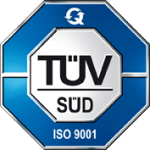Ryadon has a standardized process of evaluating sourcing companies. See below for some of the items we focus on evaluating sourcing.
Expertise
We start by assessing the supplier’s level of expertise. We make a careful evaluation of their abilities and compare them to your needs. We next evaluate what their clients have to say. How satisfied are they with the vendor? Have they run into any issues? Find out why past clients switched suppliers.
Ability
Every supplier we evaluate must be capable of meeting the demands of your business. Specifically, find out how quickly they can adapt to changes in demand and supply as well as your needs. We also examine the resources of the provider as well. Given their obligations to other clients, do they have the resources to fulfill your orders? These resources may include personnel, tools, space for storage, and readily available goods.
Dedication
We also evaluate providers on their ability to dedicate to high-quality standards. Look for quality efforts within the company, such as ISO 9001 or Six Sigma, where necessary. The supplier must also demonstrate their dedication to you, the customer, for the duration of the time you anticipate working together. If you’re intending a long-term relationship with them, this is especially crucial. We look for proof that they are persistently dedicated to satisfying your demands, regardless of the needs of their other clients.
Control
Ryadon analyzes the degree of control that this supplier has over your company’s processes, practices, and supply chain. How will they guarantee consistency and dependability of delivery, especially if they depend on limited resources that are under another organization’s control? The General Data Protection Regulation (GDPR), which is crucial for every firm that operates in or has partners in the European Union, must be complied with, must also be questioned (EU).
Cash
We also evaluate the supplier’s finances. Businesses that are cash-positive are significantly better equipped to withstand economic ups and downs. So, is this supplier financially strapped or does the business have an adequate amount of cash on hand? And what proof of the supplier’s continuous financial stability may be provided?
Cost
We examine the price of the good or service this supplier offers. How does it stack up against the alternatives you’re thinking about? All firms believe that when choosing a supplier, price is an important consideration. If you want to rely on the supplier in the long run, other considerations like a commitment to quality and financial stability may potentially have a considerably bigger impact on your business than pricing alone.
Consistency
How will this supplier guarantee that their products or services are always of a high standard? Do they have a proven track record or are they a fresh face with a novel idea? To maintain consistency, the provider should have policies or guidelines in place.
Culture
The strongest professional ties are those that have roughly parallel working principles. This is why it’s crucial to consider the supplier’s corporate culture. What if, for instance, your company values quality above all else, but your primary supplier is more concerned with meeting deadlines? This discrepancy can indicate that they are prepared to make compromises you would find unacceptable.
Clean
This is a reference to the supplier’s dedication to sustainability and their compliance with environmental regulations and industry standards. What steps are they taking to lessen their impact on the environment? Get a copy of any awards or certificates they may have for being environmentally friendly. Does this supplier treat its employees — as well as the people around them — with respect? Do they have a reputation for upholding CSR principles and conducting themselves ethically?
Communication
Ryadon manages the supplier with a process of standardized communication with a point person. We answer questions that you may have including: Do their suggested communication strategies match the ones you prefer? Who will be your point of contact at this company? If there is a supply disruption, how soon will they let you know? How is that conversation going to happen?



